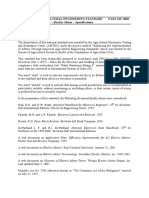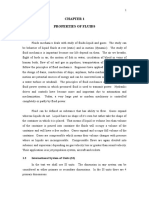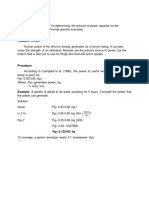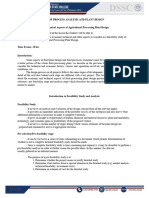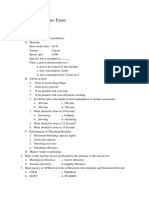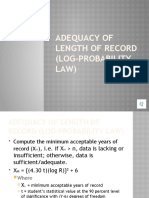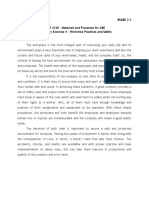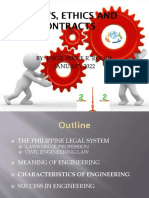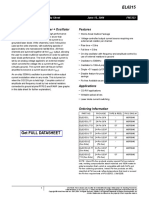0% found this document useful (0 votes)
240 views4 pagesUnit I
The practice of agricultural engineering in the Philippines began in 1912 with the University of the Philippines offering it as a major. The first B.S. in Agricultural Engineering degrees were granted in 1951. Currently there are around 47 schools that offer the 5-year B.S. Agricultural Engineering degree program. In 2018, the degree was enhanced to a 4-year B.S. in Agricultural and Biosystems Engineering to align with recent legislation changing the profession. Philippine law has governed the field through several Agricultural Engineering Acts starting in 1964 to regulate the profession.
Uploaded by
MARIA KASSANDRA ECOTCopyright
© © All Rights Reserved
We take content rights seriously. If you suspect this is your content, claim it here.
Available Formats
Download as PDF, TXT or read online on Scribd
0% found this document useful (0 votes)
240 views4 pagesUnit I
The practice of agricultural engineering in the Philippines began in 1912 with the University of the Philippines offering it as a major. The first B.S. in Agricultural Engineering degrees were granted in 1951. Currently there are around 47 schools that offer the 5-year B.S. Agricultural Engineering degree program. In 2018, the degree was enhanced to a 4-year B.S. in Agricultural and Biosystems Engineering to align with recent legislation changing the profession. Philippine law has governed the field through several Agricultural Engineering Acts starting in 1964 to regulate the profession.
Uploaded by
MARIA KASSANDRA ECOTCopyright
© © All Rights Reserved
We take content rights seriously. If you suspect this is your content, claim it here.
Available Formats
Download as PDF, TXT or read online on Scribd
/ 4



